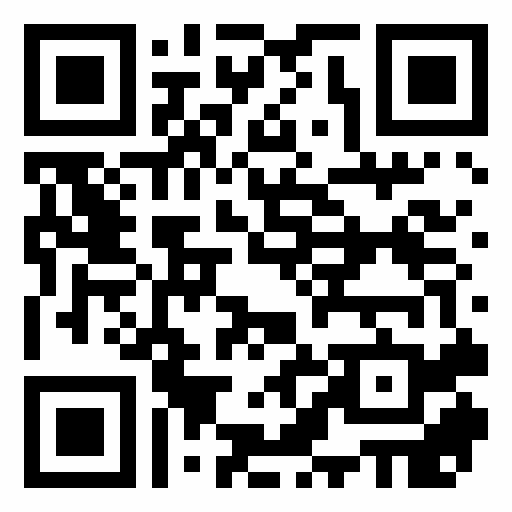PHARMACEUTICAL CONSULTATION AS A BASIS FOR DRUG CARE CONTINUITY
Soboleva Mariia Sergeevna 1*, Loskutova Ekaterina Efimovna 2, Kosova Irina Vladimirovna 2, Amelina Irina Vladimirovna 3
|
|
|
ABSTRACT
The volume of pharmaceutical consultations and the format of its provision vary considerably in different countries depending on the legal regulation and qualifications of specialists. Pharmacy workers in Russia, when selling drugs, must provide this service, and its capacity and content are determined by the relevant documents. Purpose: determining the attitude of pharmaceutical workers to the information service of pharmaceutical consultation, as a factor in the continuity in drug care. Materials and methods: the questioning of pharmaceutical specialists with higher and secondary pharmaceutical education, working directly with visitors in drugstores "first table workers" (n = 93). Statistical analysis (Spearman’s rank correlation coefficient). Results: 49.5% of respondents conduct pharmaceutical consultation "in most cases" when selling an over-the-counter drug and 35% when selling a prescription drug. In addition, more than 20% of the respondents provide information to the patient each time they realize a drug, regardless of the order of its sale. Only 49.5% of pharmacy workers surveyed consider pharmaceutical consultation an obligation, even though it is defined by regulatory acts. The main source of information for pharmaceutical consultation is the instruction on the medical use of the drug, while 27% of respondents do not use the algorithms of the information service, despite the rules of the Good Pharmacy Practice. Pharmaceutical consultation of medical specialists is rare, but 90% of respondents remind patients in the drugstores of the need to visit a doctor. Conclusion: pharmaceutical consultation is a popular information service that ensures continuity in drug therapy.A
Keywords: pharmaceutical consultation, pharmacy workers, continuity in drug care, information service
Introduction
Pharmaceutical consultation is an integral part of the retail of pharmacy products [1, 2]. Aspects of the information service provided are studied by specialists around the world. Possibilities for increasing the volume of counseling, as well as the possibility of integrating some medical and preventive functions, are actively discussed [3]. The effectiveness of therapy and its impact on the health of patients [4] are evaluated.
Pharmaceutical workers act as the main assistance subject for drug care of patient, therefore, given the increasing role of community pharmacy, a regular assessment of the professionalism of the staff is needed [5]. At the same time, there are no uniform standardized criteria for the qualification of workers [6], and the successful integration of extended pharmacy services requires, among other things, the availability of clinical skills [7]. The list of services provided in the drugstores was determined, first, by the legislation of individual countries and the disadvantages in the work of pharmaceutical specialists were revealed regardless of the geographical location, the assessment methods used [8, 9]. One of the most common infringements is the sale of over-the-counter drugs and consultation about drugs without a doctor's appointment. For example, according to a multicenter study, the total proportion of over-the-counter antibiotics is 62%, 58% of which is based on the recommendation of pharmacy staff. The most common cases are upper respiratory tract infections and urinary tract infections [10]. The main causes of the violations are "the imperfection of national regulation of the circulation of drugs, the lack of qualified pharmaceutical personnel, commercial pressure on personnel, consumer demand, inappropriate prescribing practices, and insufficient awareness of pharmacy workers" [11]. For example, according to a systematic review, the main barriers to the active participation of pharmacy workers in the treatment and prevention of cardiovascular disease are: "pharmacist-related factors; practice site factors; financial factors; legal factors; and patient-related factors" [12].
Pharmaceutical consultation can be carried out at various stages of drug care. So, in the world, the services of hospital pharmacists are actively practiced, including in emergency departments. The main aspects of the consultation, in this case, are the control of the physician prescribing and dose compliance, evaluation of the effectiveness of therapy, and the risk of developing side effects [13].
Another popular function in pharmaceutical consultation is monitoring. Thus, according to studies and meta-analyses, it is promising to measure blood pressure [14], glycated hemoglobin, side effects, general well-being [15], cholesterol, creatinine, uric acid, liver enzymes, international normalized ratio, volumes of forced exhalation in chronic obstructive pulmonary disease, etc. [16]. One of the directions of expanding the volume of pharmaceutical consultation is the formation of a healthy lifestyle [17] and the motivation to stop smoking [18], increase compliance with therapy [19], provide preventive services [20] and even immunize the population [21].
In the Russian Federation, pharmacy consultation is most often limited only to providing the patient with information about the drug. Accordingly, the attitude towards pharmaceutical consultation, in both patients and specialists, is quite contradictory. On the one hand, when carrying out drug therapy, the main source of information should be the attending physician, on the other hand, if the patient needs it, then the pharmaceutical worker should also be a full-fledged and reliable source of information. Therefore, the aim of the study was: to determine the attitude of pharmaceutical workers to the information service of pharmaceutical consultation, as a factor in the continuity of drug care.
Material and Methods:
Material and methods: a questionnaire of pharmaceutical specialists with higher and secondary education, working directly with visitors to pharmacy organizations "first table workers." The sample was 100 questionnaires. 93 questionnaires were considered suitable for further processing of the obtained information (response was - 93%, sampling error - 8,6%) [21]. Questionnaires were processed using Microsoft Office Excel 365 using the "Subtotals data" package. The average age and seniority of specialists were presented as mean ± standard error. Statistical data processing was carried out using IBM SPSS v.25.0. A non-parametric criterion, the Spearman's rank correlation coefficient, was used to determine correlation with the sex of respondents and work experience in the specialty. The correlation was considered valid at two-sided significance p0 <0.05.
Results and Discussion:
The main characteristics of the interviewed specialists: female sex - 95.7%; mean age 38.69 ± 1.31 years; the mean work experience in the specialty 14.01 ± 1.34 years. At the first stage of our study, experts were interviewed about the frequency and demand for pharmaceutical consultation when selling over-the-counter drugs, as well as prescription drugs. The distribution of answers is shown in Figure 1. This information service is in demand regardless of the category of drug realization. Almost half of the respondents choose it "in most cases" when selling an over-the-counter drug and 35% when selling a prescription drug. In addition, more than 20% of respondents provide information to the patient "at each realization of a drug," and more than 15% - several times per work shift. There was no reliable correlation with the employee's gender and experience. The results obtained are logical in connection with the spread of self-medication in the Russian Federation, as well as with a decrease in the availability of specialized medical care in sparsely populated regions. Interesting is the fact that 13% of respondents do not conduct consultation when selling even an over-the-counter drug, and 18.3% - when selling prescription drugs. This is a violation of the requirements of regulations in which pharmacy consultation is one of the labor functions of pharmacy workers and should be provided when selling drugs.
In the next phase of our questionnaire, we interviewed pharmacy workers about their views on the role of pharmaceutical consultation in the process of patient care: prescribing a drug by a doctor - receiving the drug in a pharmacy - using the drug by the patient. The distribution of respondents' responses is shown in Figure 2. Based on the data obtained, it can be concluded that half of the respondents, in accordance with the law, consider this information service to be the responsibility of a pharmaceutical worker. At the same time, more than a quarter of respondents called consultation about drugs a function of a medical specialist. On the one hand, of course, it is the duty of the doctor to explain to the patient all aspects of drug therapy. On the other hand, in conditions of limited time for a visit to the doctor, there is not always the possibility of a full consultation, the patient may also misunderstand the doctor, forget or confuse information, in addition, the patient can directly go to the pharmacy to purchase an over-the-counter drug in case of mild malaise or exacerbation of a chronic disease, the diagnosis of which was made earlier (acute respiratory viral infection, allergy, urinary tract infections, musculoskeletal diseases, etc.). There was no reliable correlation with the gender and experience of the specialist.
More than 12% of respondents consider pharmaceutical consultation a competitive advantage of a pharmacy. A professional service can really become a factor of the loyalty of visitors to this organization and increase the demand for specialist services, and, therefore, the sale of goods. There was a reliable correlation with the gender of the respondent. The prospect of the service, as a factor of competition, was more often pointed out by women (Rs = 0,030,2350,42; p = 0,024). As an additional service, it was rated by 11.5% of respondents, which as well does not meet the requirements of the law. The obtained data prove the need to train specialists in the requirements of regulatory acts.
At the next stage of the questionnaire, respondents indicated the most common sources of information when conducting pharmaceutical consultation. When interviewing, they could choose several options at once. The distribution of respondents' responses is shown in Figure 3. Based on the data obtained, it can be concluded that 82% of respondents in carrying out pharmaceutical consultations are guided by instructions on the medical use of a drug, which meets the requirements of the legislation. Electronic information systems are used by 38% of respondents. Moreover, there was a reliable correlation with the gender of the specialist. This source of information is more commonly used by women (Rs = 0,070,2730,45; p=0,008).
Information from medical representatives is used by 22% of respondents. Data from manufacturers or distributors can be useful in the provision of information services, however, much information, in this case, do not have official status, and can also be a subjective opinion of a particular specialist, therefore they must be evaluated, primarily from the point of view of evidence medicine. At the same time, 19.3% of respondents are guided by medical and pharmaceutical periodicals. Specialized literature provided that there is a full-fledged review, which is a more reliable source of information and contains a lot of professional scientific terminology and data processing, so its interpretation requires time, which is not always available in conditions of the workload of pharmacy workers.
20.5% of respondents indicated the use of software products developed within the organization. Adapting databases to the needs of the organization and a user-friendly interface certainly have some advantages: simplicity, accessibility, compactness, and visualization. However, the main sources of such programs should be data from official instructions for medical use.
The standardization of any service provided should be based on an algorithm. Pharmaceutical consultation is no exception. The standard operating procedure for the realization and sale of pharmacy products is a requirement, even if there are no own software products inside the pharmacy organization. At the same time, only 40.9% of respondents replied that they use consulting algorithms for all major groups of drugs. 26.9% of surveyed workers used algorithms only for some therapeutic classes. The most popular options were: antitussive, decongestants, gastrointestinal drugs, antibiotics, and antihypertensive drugs. Among the groups indicated by respondents, there are no other most acquired classes of drugs (painkillers, immunostimulants, chondroprotectors, antiseptics, etc.). 24.7% of respondents noted that they do not use consulting algorithms at all when selling drugs, which can lead to a long search for information, an irrational distribution of time during implementation, the formation of a queue, as well as an increase in the risks of conflict situations in a drugstore. There was no reliable correlation between gender and work experience.
The modern pharmaceutical worker must ensure the continuity of drug care. In addition, his/her duties include advising a medical specialist on various aspects of the effective and safe prescribing/usage of drugs, if such a need arises. This information service is in demand worldwide as part of a hospital pharmacy. In our country, there is no such division of functional duties, so at the next stage of the questionnaire, we asked pharmacy workers to clarify their participation in the formation of the "doctor-pharmacist-patient" chain. The distribution of respondents' responses is shown in Figure 4. Based on the data obtained, it can be concluded that 45% of respondents rarely advise the medical specialists, and 42% did not provide such a service at all. Counseling medical workers, especially about the range of drugs, can be relevant in rural areas/territories remote from the administrative center, since the presence of the prescribed drug in the pharmacy organization remains one of the factors in increasing the availability of drug therapy and reducing the risk of developing complications of the main disease, due to the lack of the drug in the patient.
Another important factor in the effectiveness and safety of therapy is the reminder of the need for a visit to the doctor and compliance with his prescriptions. The majority of pharmacy workers (90.3%) indicated that they regularly inform patients about this, so pharmaceutical consultation can be considered as one of the factors for increasing compliance, and, therefore, the effectiveness of treatment.
Conclusion:
Pharmaceutical consultation is a popular information service for the sale of both over-the-counter and prescription drugs. 50% of interviewed pharmaceutical specialists consider counseling about drugs to be the responsibility of a pharmacy employee, but 26% indicated that this is the competence of a medical specialist. An attending physician, of course, should explain to the patient the instructions of using the drug, but according to the requirements of the Good Pharmaceutical Practice, which has been in force in the Russian Federation since March 1, 2017, consultation of the patient in drugstores as well is the responsibility of a pharmaceutical specialist. The main source of information is the official instruction on the medical use of the drug, and electronic directories and software products developed internally are also in demand. In the conditions of mandatory presence of standard operating procedures, 25% of respondents do not use algorithms when consulting the patients, which can negatively affect the duration and content of the information service provided. Advice to medical specialists by pharmacists is less in demand in the Russian Federation, it has traditionally been the function of pharmacy managers and their deputies. The positive is the fact that 90.3% of pharmacy workers remind the visitors about the need to visit a doctor and observe prescribed therapy. Thus, pharmaceutical consultation is a full-fledged link in the continuity of drug care for patients.
Conflict of interest:
The authors declare that there are no clear or potential conflicts of interest related to the publication of this article.
Source of funding:
The authors claim that there is no funding.
Compliance with the principles of ethics:
Research work meets the ethical standards developed in accordance with the Helsinki Declaration of the World Medical Association "Ethical principles for conducting scientific medical research with human participation" as amended in 2000. The epidemiological study was conducted without the participation of humans and animals. The summary of the conducted study was considered and approved at the meeting of the Ethical Committee of The Far-Eastern State Medical University of June 05, 2018 (Protocol № 3).
Acknowledgment:
No.
References
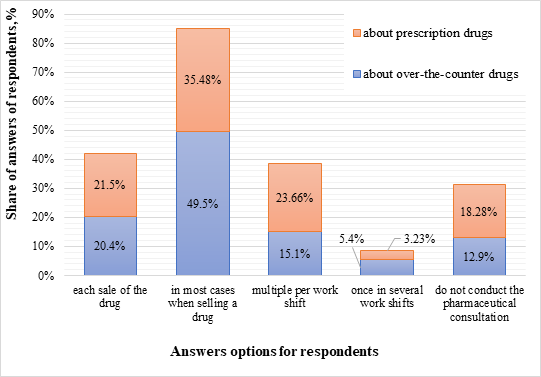
Figure 1 – Distribution of respondents' answers about the frequency of pharmaceutical consultation in the sale of drugs with various orders of realization from drugstores
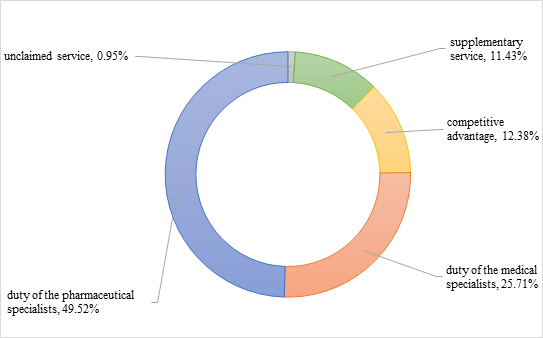
Figure 2 - Views of pharmaceutical specialists about the role of pharmaceutical consultation in practice
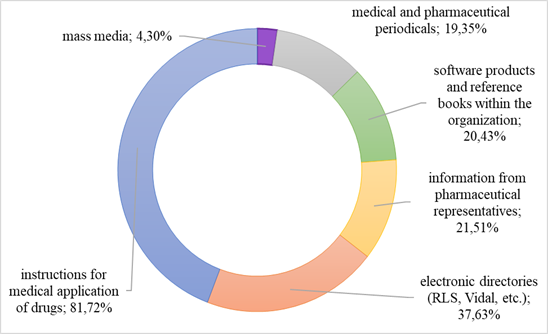
Figure 3 - Main sources of information for pharmaceutical consultation
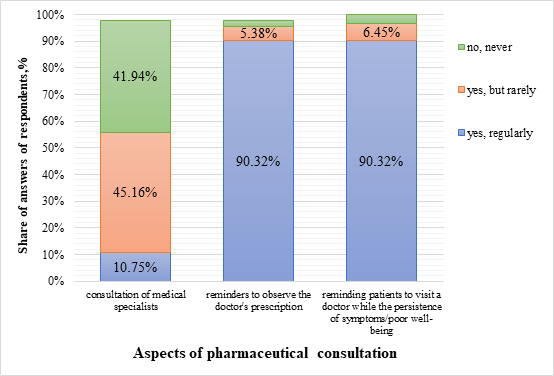
Figure 4 - Distribution of respondent`s answers about the continuity in medicinal care
